The house hadn’t woke yet. The AC breathed in the vents and the fridge clicked once, going still again. In the bedroom, the dark held to the corners while a thin wash of gray found the dresser and the closet door.
Laney sat on the edge of the bed with one heel hanging over the other knee, hands rubbing lotion into her skin. The dress she’d ironed last night hung straight from the top of the door like it was standing watch. She smoothed her hand over her calf and kept her eyes on it.
Tommy stood by the dresser in his uniform. Fabric stiff from starch. Boots laced clean. He set his watch on, quick and neat, then checked the line of his name tape with a thumb. Velcro whispered when he sealed a pocket. He didn’t turn on the lamp. He knew where everything was.
They moved around each other the way they always did, counted steps and no wrong angles. His shoulder passed behind hers as he reached for his wallet on the dresser. He paused, set it down again, and slid his ring over the tip of his finger like he’d almost forgotten it. He hadn’t. He just did things in order.
“I’m going to Fort Stewart,” he said.
Her jaw clicked once. She turned her head, not all the way, enough to catch him in the mirror. “How long you gonna be gone?”
“Three months.”
A small heat flashed through her eyes and was gone. She pulled a breath and let it out slow. “When you leaving?”
“Two days.”
She nodded. “I’ll tell the boys when they get up.”
“Alright.”
Down the hall, the water heater ticked. Somewhere a car eased by and then the quiet filled back in. Tommy lifted his cover from the dresser, flattened the crown, and rolled the brim between finger and thumb to make it sit right. He stepped toward the door. He didn’t touch her. She didn’t move for him.
“You need anything from me before you go?” she asked.
“No.”
Her mouth pressed, then eased. “Coffee?”
“I’m good.”
He crossed the threshold. His boots found the hallway, firm but not loud. The house told on him as he went. The front door latch caught and the seal pulled shut.
Laney stayed where she was a beat longer, palms on her knees, eyes on nothing. The mirror waited. She stood and faced it, the glass dull with the low light, her outline cut out of the gray. The skin at her throat showed a flush that always came before it left. She didn’t chase it with powder. She didn’t move at all until her hands knew what to do.
She took the dress from the hanger and slipped it over her head. The cotton fell cool against her shoulders. She shook the hem once to settle it, then reached back and found the zipper. She drew it up to where her elbow stopped bending. The teeth held steady and left a narrow gap between her shoulder blades.
The room smelled faintly of wood cleaner from last night’s wipe-down and the clean heat of the iron lingered in the fabric. She kept her chin tucked and rolled her shoulder to make the line sit flat. No rush. No wasted motion.
The hanger lay on the bed. She hooked it with two fingers, slid the thin metal under the zipper pull, and turned her wrist so the hook caught. She pulled the line up in one smooth draw. The sound was a soft run of teeth closing, sure and even. At the top she tipped the hanger sideways, eased it clear, and lifted it free from behind her neck without catching hair.
The road lay long and pale ahead, dashes ticking through the windshield and disappearing under the hood. The AC pushed at the heat and almost won. Mireya kept one hand at the top of the wheel, the other resting on her thigh until the tapping of her nails annoyed her and she stilled them.
Camila slept hard in the back. Her head leaned to one side, mouth open just enough to glisten the strap against her cheek. The tablet she’d fought to keep for the first hours drooped from her fingers now, the corner bumping her leg with each rise and sway of the highway. It could slip. It could wake her. Mireya checked the mirror, made the note in her head she’d already made twice—next exit, slide it onto the seat, in reach when the girl came up looking for it.
She pushed her sunglasses with a knuckle, rubbing the ridge they left on her nose, then dragged her fingers through her hair until the tangles gave. The tank top clung at her ribs. Her shorts rode high on her thigh when she shifted.
In the cup holder, the small roll waited—rubber band dulled from too many stretches. She’d counted it last night and again in the kitchen in the dark before they left. The night before’s take, buoyed by a couple VIP dances.
The columns opened anyway. Rent first. The number, then the number behind it if a late fee decided to get involved. Utilities next—the light bill with its little threat printed in red, water, gas that ran hot even when you wanted it cool. Whatever Camila needed. Wipes, food, hair stuff, the little things that added up. And soon, tuition and books—a new kind of weight.
A semi moved into the left lane and slid past, wind shoving the car over half a step. Mireya corrected easy, the driver’s face a flash in her periphery before the trailer’s rattle softened into the day. A sign promised gas three miles and a breakfast place with a cartoon chicken that smiled too hard. She told herself again—next exit. Get the tablet out of Camila’s hand. Stretch her back. Finish the warm coffee in the travel cup. Get more.
Camila sighed in her sleep and clamped tighter, fingers stubborn even while dreaming. The tablet’s frozen frame showed a rabbit mid-jump. Mireya watched the mirror and the road in the same breath. The girl didn’t stir.
The sky was clean in front, heavier in the rearview, a bank of gray holding over where they’d come from. Statesboro sat somewhere ahead, not close. Mireya felt the pull of it in her foot and flexed her toes against the floor mat until the ache in her ankle eased. The engine hummed a thin tin-can song she knew too well.
She let out air through puffed cheeks and kept it from turning into a sound. Then she reached and nudged the radio one notch up. Low, still. A song she half knew threaded under the road noise. She kept it there so it wouldn’t pull Camila out of sleep, and so it wouldn’t pull on her either. Just enough to put something between the thoughts.
Old Western gunfire popped in blue wash across the living room. Leo lay sunk into the couch, hand wrapped thick and wrong, the bandage lifted on a pillow he’d stolen off the bed. Dust floated through the TV light. A beer can sweated on the table next to a plate with dried gravy, a ring of sauce bitten out of it. The A/C rattled and lost. The afternoon heat pressed anyway.
A hard knock hit the door. One sharp rap, then another.
“Get the door,” he called, voice rough.
No sound from the back. The TV cowboys traded lines through sand and horses. He waited, jaw tight.
“Hey,” he shouted, louder. “Get the fucking door.”
From down the hall, his wife’s voice shot back, bright with bite. “Your hand’s fucked up, not your fucking feet.”
Leo pushed himself up with a hiss, the pillow sliding off his lap. He grabbed the remote and tossed it onto the couch. It bounced and spun to the carpet. He crossed the room, shoulder clipping the wall on the way, and angled to the side to look through the small pane.
Stasia stood on the porch. Two coffees in a cardboard tray, hair slicked back into that tight bun she wore when she meant business. Blouse tucked clean into expensive slacks, glasses on, chin up. She didn’t glance anywhere but the door.
He unlatched and yanked it open. “What you want?”
She stepped past him, uninvited. Air from outside slid in, damp and hot, folding into the stale house smell. Her shoes didn’t squeak on the scuffed laminate. She looked around once, fast, and the corners of her mouth didn’t move.
“We wanted to check in on you,” she said.
Leo snorted, a sound in his nose more than his throat, and went back to the couch. He sat and got his hand set on the pillow again, the bandage puffed where fingers used to be. The TV horses screamed and went quiet. He found the remote with his knee and clicked the sound down two notches.
“This is for you,” Stasia said.
She lifted one coffee out and held it over his wrapped hand. The steam curled against the tape and gauze. She didn’t lower it. She didn’t seem to see the way he stared at the cup and then at her face.
He reached with his other hand and took it.
“Have you been talking to the police?” she asked.
“About what?” Leo said. “Getting shot?”
She set the second coffee on the table beside the dead gravy plate, then picked it back up a half inch and set it down again so the cardboard made a small, neat sound.
“I don’t drink cheap coffee,” she said. “You can have that one too.”
The A/C coughed and caught. On the TV, two men faced each other across a wide street. The street wind pushed dust through their boots.
Stasia turned from the mess toward him. “I would hope you understand if you decided to talk about what little you know about what Felix and I do, we’d be very glad to testify about the contractor fraud you and your uncle have been running for years. And with all the other fraud, I think that would get you life. RICO being what it is and all.”
Leo’s eyes cut up at her. He took a slow drink, the lid clicking under his lip. “What that gotta do with me getting my fingers shot off?”
She rolled one shoulder, small. “Weak and angry men do strange things out of that anger.”
He smirked without smiling. “I think your new little friend had something to do with this.”
Her eyebrow went up a line. “Mireya?”
“Yeah,” Leo said. “That bitch.”
Stasia let the quiet sit a second. The TV played a low whistle. Somewhere in the kitchen a fly tapped against a window screen, bumping, bumping, bumping.
“Then they should’ve shot your fucking dick off,” she said.
She reached for the other cup, changed her mind, left it, and walked to the door. Her eyes skimmed over the clutter, the plate, the beer can, the jacket thrown over the armrest weeks ago and never moved. She pointed with a small flick of her finger, not touching anything.
“I’m not surprised you live like this.”
She pulled the door open. The hinges made a dry sound. She stepped out and slammed it behind her. The frame shuddered. The fly went quiet.
Leo sat with both coffees within reach and the Western back to a chase across red dirt. The bandage itched under the tape. He rubbed his wrist against the pillowcase until the itch moved somewhere else.
“Hey,” he yelled, not looking toward the hall. “Come clean this shit up.”
The A/C rattled harder, then steadied. He picked up the second coffee and set it on the floor by his foot. On the TV, a gun clicked empty. He turned the volume up and leaned back slow, the couch swallowing the shape of him again.
The shed doors stood wide, the hinges complaining when the wind pushed them and the metal kissed back. Caine had laid out the guts of the place on the grass into clean lines that made sense. Two-by-fours stacked to his thigh. Short cuts squared off in another pile. Folding chairs in pairs, feet even. Bins of nails and screws lined up on a table he’d dragged out of the shadows to catch the light. The air tasted of cut grass and dust shaken loose from wood that had sat too long.
He moved slow, the work steady. A 2x4 rode his shoulder. He carried it to the long pile and set it down with the same care he’d set down the one before it. He nudged its end until the corners met. His shirt stuck at the center of his back. Somewhere behind the daycare wall a cartoon sang one bright bar and went quiet. A mower droned three fields over. A bird made a quick scold and fell silent again.
He came out of the mouth of the shed with another board and stopped. Laney stood there at the edge of the grass, hands crossed one over the other at her waist, eyes on the order he’d made out of years of everybody else’s mess. Her face didn’t move much. She looked at the boards, the chairs, the labels he’d written thick on blue painter’s tape.
“I been meanin’ to do this for years,” she said.
He set the board on the stack and lined the end, then glanced over. “Been driving me insane since my first day.”
She shifted her weight, toe digging a groove into the soft spot where the water pooled after rain. Her mouth tugged like she might smile and then decided not to. She watched him go back into the shed and come out with a plastic bin marked SCREWS, the handwriting tight and blocky. He set it with its brothers, label facing out.
He didn’t stop moving when he asked. “Can I ask you something? Why you ain’t go to college if Caleb did and Rylee is?”
Her chin lifted. She met the question head-on. “’Cause I got married.”
The words landed simple. He kept working, slid a box of glides until it kissed the one beside it. He nodded like he’d heard more than the sentence. Heat pressed across his shoulders. The smell of old oil drifted from the concrete where a dark oval bled thin at the edges.
“You ain’t dream of doing something else, though?” he asked, bending for another 2x4.
She didn’t answer at first. He set the board down and squared it with his palm. He spoke again without looking up.
“When I was a kid, I wanted to be a river boat pilot. My mama used to bring me down to the Mississippi when she got off work. We’d sit on the levee watching ships head out to the Gulf. Come back in heading up to Baton Rouge or wherever. Felt like the whole world passed by right there.”
Laney’s gaze tracked the neat piles, then him. “Why you didn’t try to do that?”
He rolled a shoulder. “Started playing ball. Dream changed.”
“I wanted to be an architect,” she said.
He looked over. “Like designing buildings, right?”
She nodded once. “Wanted to be like them big names. Frank Lloyd Wright. Philip Johnson. I. M. Pei. Jeanne Gang.”
He picked up two boxes of nails and set them down square. “But you got married.”
She didn’t blink. “But I got married.”
Silence widened. The mower cut off. A truck rumbled on the road out front and faded. The church’s AC kicked on somewhere and pushed a slow hum into the air.
Laney broke it. “Can I ask you somethin’ now?”
“Go ahead.”
“Why you turn to crime?”
He didn’t dress it up. “Watching my mama not eat so I could. Then Camila came and I had three reasons. Tried to stay in too many worlds, though. Ain’t do none of them too good.”
She nodded, not sweet about it. “Clearly not, ’cause you got arrested, wound up out here in the middle of nowhere, and you still broke.”
He looked up from the stack. “Was that a joke?”
The corner of her mouth lifted, quick and small. He let out a short laugh.
“I ain’t know you had that in you, boss lady.”
Her eyes flicked over the line of bins. She reached down and shifted a box of screws a hair so the edges lined perfect. The gesture was light and final. She turned back toward the daycare, voice tossed over her shoulder like it didn’t weigh a thing.
“Watch out for snakes.”
Caine glanced back into the shed, taking in the dark gaps behind the bottom shelf, the coil of an old hose, the shadow where the door stuck. He felt the new thought land. He hadn’t thought about that at all.
The gate squeaked when Ricardo pushed it, and the yard dust carried the morning heat even before the sun cleared the roofs. Inside, tile stayed cool under his shoes. The house was already awake. A baby cried somewhere behind a closed door. A TV murmured a telenovela prayer in the front room. Pots knocked soft in the kitchen, the smell of oil and onion heavy in the air.
He leaned and kissed his mother’s head where she sat at the small table with a plastic tablecloth, counting tortillas into a towel. Ana’s hair was damp at the edges, a loose curl stuck to her temple. She didn’t look up right away. She finished the count, tucked the towel closed, then patted his forearm without turning. He felt the press of her fingers, quick as a blessing, and moved past.
Down the narrow hall, the room he shared with two cousins held the heat. Four mattresses lay on the floor, two folded and tied with a belt in the corner. Shirts hung from a wire that sagged from nail to nail. He shut the door with his heel and lifted one mattress, shoulder and hip working together. The springs groaned. A phone slid from the hollow near the center and knocked into his palm, screen dark. He checked it, thumb quick, then pushed it deep in his pocket.
“¿A dónde vas?” Ana called from the kitchen, voice even.
He stepped back into the hallway. “North for a few days,” he said, then turned the corner to her, hand already on the door frame. “I’ll be back the end of next week.”
“You’re going north?” She looked up at him now, eyes searching his face. “¿A los Estados?”
He shook his head. “No. A Nogales.”
Ana nodded. The pause that followed was full of the house. Someone laughed on the patio. A chair scraped tile. The ceiling fan in the front room ticked once each rotation. She wiped her hands on the towel and stood, smaller than him but heavy with the authority of the kitchen. “Vaya con Dios.”
“Gracias, mamá.” He kissed her hair again. She smelled of masa and soap. He didn’t hold it long.
On the street, the sun had cleared the roofline across the way. A box truck idled at the curb, diesel clatter steady. Its white sides were clean except for dust along the seams. Two men waited in the shade it threw. One leaned against the bumper, arms crossed over a fresh soccer jersey, chin lifted. The other, older, wore a cap pulled low and a scar split his eyebrow. Their boots were heavy and clean. Their watches caught the light. They got in the truck when they saw Ricardo.
Ricardo jogged the last steps and pulled himself up into the cab, nodding once to each. The younger man tipped his chin in return. The older one let his eyes flick to the bulge of the phone in Ricardo’s pocket, then back to the mirror and the street behind. No one spoke. They didn’t need to.
The driver dropped the brake and the truck shuddered. Gears bit. The front wheels rolled over the gutter lip and onto the road. In the side mirror, Ana stepped into the doorway with the towel still in her hands. She didn’t wave. He didn’t either.
Culiacán slipped past in pieces. Shops pulled their shutters. A dog stretched and shook under a tree. A man swept dust into sunlight. The truck hit a patchwork of holes and the back rattled so hard the metal sang. Somewhere behind the cab, the load shifted, a whisper of crates against wood.
They swung near the market. Avocado stands were still setting up. Fruit gleamed with hose water. The older man flattened a palm on the dash when a taxi cut close. Nothing changed in his face.
They cleared the circle and pointed north. Heat built in the cab even with the vents open. The jersey man spoke to the driver in a low tone that didn’t ask for reply. Ricardo adjusted his grip on the grab handle and let his eyes work the windshield. Billboards for cell service. A Virgin painted on a wall. A boy on a bike pedaled hard to stay ahead of their shadow.
In the bed, something thumped and settled.
Neighborhoods fell away into scrub. The city’s noise thinned until it was engine and wind. The driver’s fingers drummed once on the wheel and stopped. Behind them the latch bumped metal, a tired sound, then quiet. Another set of holes came and the whole truck flexed. The driver didn’t slow. The scarred man’s eyes stayed on the mirrors.
They crested a small rise and the rear door clanged. One, two, three hard shakes and it settled again. In the mirror, two avocados jumped free from a gap at the corner where the seal sat crooked. They tumbled end over end, green flashing in dust, and were gone.
The AC rattled against the cheap metal grate and pushed air that didn’t cool much. Caine had one arm along the back of the couch, the other resting easy where Rylee’s calves crossed his lap. The TV glowed low with a game rerun no one watched. Rylee’s toenail traced up the inside of his jeans and back down, idling a thought.
“My girls’re headin’ to Tybee next weekend,” she said, vowels stretched soft. “Y’oughta come.”
Caine turned his head, amused. “Do I look like the type to go somewhere like that? With the same chicks you was complaining about the other day?”
“You’re from Louisiana,” she said, grinning. “Y’all got beaches, don’t you?”
He chuckled. “Define beach. Mud and water probably all we got.”
“More reason for you to come then.” Her heel slid higher along his leg, teasing. “It’ll be fun.”
A rap sounded at the door. Not tentative. Two knocks, quick. Caine eased Rylee’s legs off and stood. He crossed the small room in three steps and put his eye to the peephole. The chain was off before Rylee finished shifting upright. He never moved that fast. It made her eyebrows jump.
He opened the door. Mireya stepped in, Camila draped over her shoulder, mouth open in sleep. The child’s little hand hung loose, knuckles scuffed and clean now, her weight doing that heavy trust sleep had.
Caine’s face changed in a way Rylee hadn’t seen. He reached for his daughter without thinking, voice dropping warm.
“Ven acá, muñeca,” he murmured, the words soft and steady as a hand on water. Camila stirred but didn’t wake, cheek finding the place under his jaw. He kissed the top of her hair, then leaned and put his mouth at the corner of Mireya’s. The contact was quick and sure.
“Why you ain’t tell me y’all was coming?” he said, already shifting Camila to the better arm.
Mireya’s sunglasses were pushed into her hair. She hitched the strap of a bag higher and shrugged. “Camila wanted to surprise you.”
“And now she’s asleep.”
“You want me to go put her down?”
He shook his head. “I will.”
Mireya nodded and let him pass, her hand brushing the toddler’s heel on reflex. Rylee watched from the couch, eyes flicking to Mireya’s face, then to the tank top and the small waist, down to the shorts and her bare legs, then back again. She smoothed her own shorts, mouth pressed.
Caine disappeared down the short hall. The bedroom door clicked soft. The TV yammered in the empty space he left. Pipes somewhere in the wall knocked once, then settled. In the kitchen a slow drip hit the sink, an off-beat metronome under the AC’s rattle.
Mireya looked over and took Rylee in with one pass, cool as checking the time. “Hey,” she said, flat. No curl on it either way.
“Hey,” Rylee answered. Her gaze cut to Mireya again and then away. She tugged her hem again and tucked a knee under herself like she meant to stand and changed her mind.
Caine came back out with the quiet gait. He slid an arm around Mireya’s shoulders and pressed a kiss to the side of her head, nose in her hair for a beat. “You need anything?”
She shook her head. “I’m gonna shower.”
He tipped his chin toward the hallway. “Alright.”
Mireya crossed the room without looking at Rylee. The door shut and the water turned on.
Rylee stood and moved close to Caine, voice dropped to a whisper near his shoulder. “I thought you said y’all weren’t together anymore?”
He blinked, bringing her back into focus. “We aren’t.”
Water started, a rush through old pipes. A belt of citrus from Mireya’s bag brightened the air. Rylee’s eyes went to the door, then back to his mouth. She shifted, made like she might sit again, then didn’t.
The door opened a moment later. Mireya stepped out with her hair piled in one hand, bra catching the light, shorts still on. She didn’t register Rylee. “You got any more soap?” she asked Caine, head tipped toward the bathroom.
“Yeah,” he said, already moving. “I’ll show you where it’s at.”
Rylee reached for her purse on the coffee table. The strap scraped the wood. “I’m gon’ head out,” she said, twang pressed thin. Her eyes cut to Mireya one more time.
Caine nodded without looking over. “Alright. Talk to you later.”
He and Mireya drifted toward the hall. Rylee opened the door. The corridor’s stale light bled in, carrying someone else’s music and the hum of a vending machine down by the stairs.
“Drive safe,” Mireya called, voice even, as the door shut behind Rylee and took the apartment quiet with it.


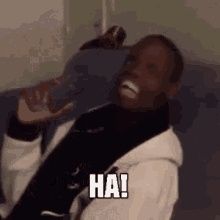
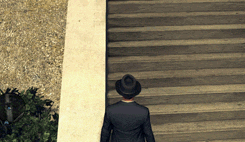
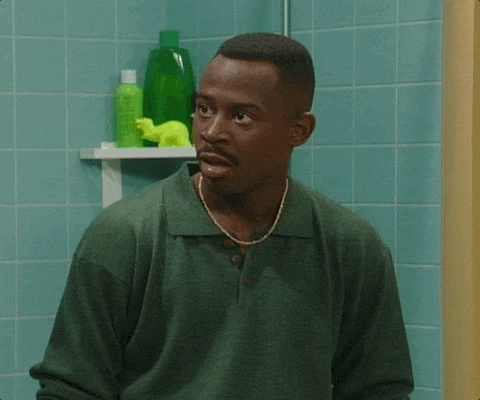
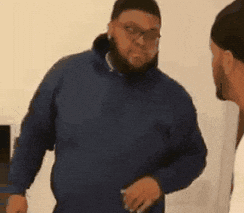
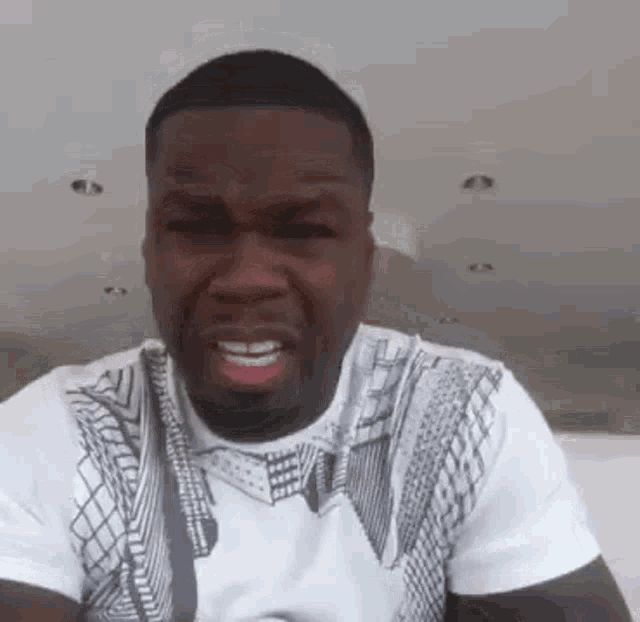 She not taking that little white girl seriously.
She not taking that little white girl seriously.